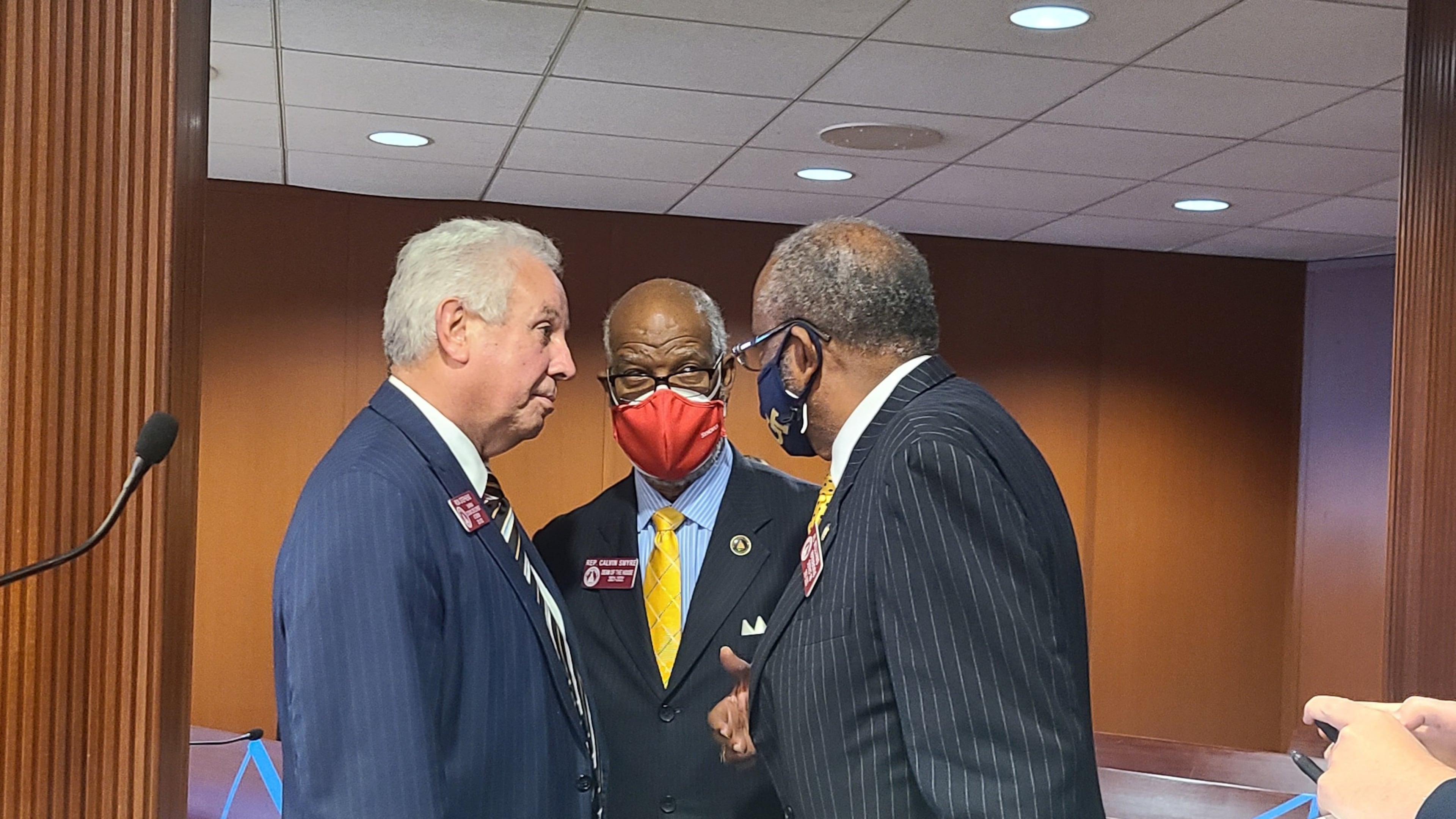Sports betting bill sails through Georgia House panel

Legislation that would legalize online sports betting easily sailed through a state House panel Tuesday in a move aimed at expanding gambling without the constitutional amendment that’s usually required.
House Bill 86 would authorize the Georgia Lottery to manage an online sports wagering system, with some proceeds going to fund HOPE college scholarships. House Tourism and Economic Development Committee members voted 20-6 on Tuesday to approve the legislation.
The vote wasn’t a surprise since the bill’s sponsor is the committee’s chairman, state Rep. Ron Stephens.
Stephens said the measure is a step toward shoring up the HOPE scholarship.
“This is an opportunity for us to add a small amount of revenue — $40 million — into the current mechanism that we use to fund the HOPE scholarship,” the Savannah Republican said.
When approved in 1992, state law directed the Georgia Lottery to set aside as close as possible to 35% of its proceeds to fund the scholarship, but often the games only send about 25% of their revenue on to state education programs.
Still, the state has more than $1 billion in lottery reserves in case it needs more money for HOPE and pre-kindergarten programs, so Stephens’ measure would provide only a minor addition to the program’s funds.
According to the legislation, sports betting companies would pay a 14% tax on their income, with all the revenue going to the HOPE scholarship.
Players would have to be over 21 to bet, be in Georgia to place a wager and could only bet on professional sporting events. Wagering on college games would not be allowed.
For years, gambling supporters have pushed the Legislature to expand the industry to allow casinos or horse racing. But a 2019 U.S. Supreme Court ruling opened an opportunity for states to legalize sports betting. About 20 states either have or are in the process of establishing legal sports betting.
Rep. Randy Nix, a LaGrange Republican, pastor and member of the committee, said he opposes gambling and views sports betting as a “slippery slope.”
“If this was going to be the end, it might be OK, but this is just starting us toward casinos and a lot of other things,” he said.
Stephens has also filed legislation that would put a question on an upcoming ballot asking Georgia voters to support allowing casinos in the state.
After years of failed attempts to expand legal gambling through a constitutional amendment, which would require two-thirds support in each chamber of the Legislature and a majority of Georgia voters, Stephens said sports betting could be legalized through legislation that only needs the backing of a majority of lawmakers.
HB 86 is backed by the Georgia Professional Sports Integrity Alliance, a coalition of four professional franchises — the Atlanta Braves, Atlanta Falcons, Atlanta Hawks and Atlanta United.
And powerful Republicans, including House Speaker David Ralston and Lt. Gov. Geoff Duncan, have signaled some support for sports betting legislation.
During the Tuesday meeting some members expressed concerns about the addictive qualities of gambling and urged stronger safeguards be put in place.
“I feel like we really need to have something in place for people that get caught up into this trap, because people are really going broke,” said state Rep. Miriam Paris, D-Macon, who voted for the bill. “Every time I see that (prize) number on billboards, I know that poor people make that number happen.”
The legislation as drafted directs sports facilities to post signs with a support hotline telephone number for people who struggle with gambling addictions. Stephens said the lottery also spends about $400,000 a year for addiction programs.


